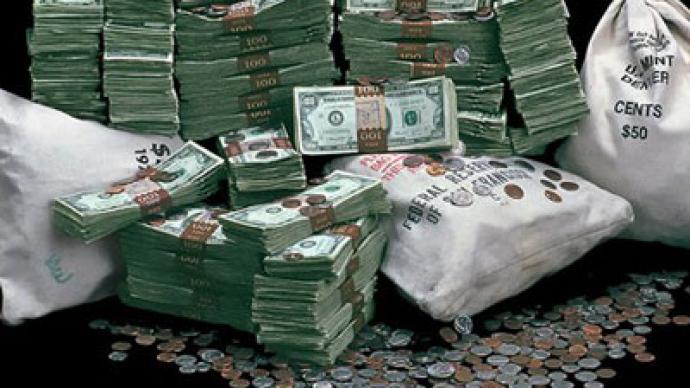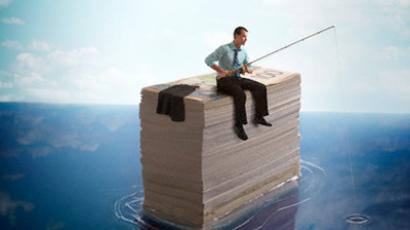Drawing foreign investment into Russia

The Russian Finance Minister, Aleksey Kudrin, says that foreign investment is vital for GDP growth that Russia needs, noting that foreign direct investments into Russia fell by a half last year to around $13 billion.
Business RT spoke with Uralsib Chief Strategist, Chris Weafer, about the factors driving Foreign Investment into Russia.RT: Is the trend of declining FDI going to continue?CW: “It has better not, I think, as we hear from the Finance Minister today, that Russia needs to attract a substantial increase in foreign investment, both in terms of capital and expertise – remember we need both – if Russia is to develop its industries and the modernisation program is to develop as planned. Growth in the last ten years was fuelled by one and a half trillion dollars worth of oil and gas revenues. The budget now needs about $90-$95/bbl to balance, a lot of that money goes into social programmes – pensions salaries etc. There is very little left for investment, but yet we know that we are now at the point where the economy needs a substantial increase in investment if we are to hit those targets. Our analysis is that if there is no increase from these very low levels of Foreign Direct Investment, then the economy may go into a long period of two and a half to three percent growth, and that is clearly not enough.” RT: When we talk about investment, maybe not direct investment but capital inflows, is that happening? Are we seeing capital flowing into Russia?CW: “Well, we are seeing stock market flows coming in, and we get this data on a weekly basis from an agency in the US, and that does show that, this year, portfolio investors prefer Russia to the other big emerging market funds. So, for example, the last four or five weeks, there has been net outflows from countries like Brazil China and India, whereas Russia has attracted money. So portfolio investors are betting that things are going to change, and that is a hopeful lead indicator, but we still need to see a pickup in Foreign Direct Investment, and frankly, we really don’t expect to see that until after the election. The second half of 2012 is the more realistic target than 2011, and maybe not until 2013.”RT: So investors are looking for stability, are they looking for risks? What are they looking for?CW: “Well, they’re looking to see that Russia really is at the point of change, that it is serious that it is about improving the investment climate, of tackling some of the headline issues that we read about every day, such as corruption, redrafting some of the legislation, and the administrative rules that actually block investment, and generally just improving the investment climate. You know, legal protections, legal redress etc. so, we are at this point now, I think, that investors are certainly more willing to give Russia the benefit of the doubt. We certainly see from our side, that there are a substantially large number of companies doing due diligence on Russia, that they are looking at Russia. But still they have a wish list of things they want to see changed, you know, such as dealing with legal protections and corruption. And if those issues are dealt with, or they do see real improvement, over the next year, year and a half, then, I think, we’ll see the investment capital coming in. But I really don’t think we are going to see it this year, people will want to see these issues addressed, and joining WTO at the end of this year, I think, will be a very significant milestone in the effort to attract more foreign investment.”RT: That was of course a very long running process. We’ve seen a few weeks ago that Finance Minister Kudrin was saying that we need a 7-10% increase in investment every year to keep the economy growing. Do you think that is realistic, and how important is the privatisation programme in that respect?CW: “It is realistic if Russia deals with this wish list that I mentioned. I mean it’s very sort of clear cut right now – investors are certainly interested in Russia, but only if some of these significant barriers are removed, such as corruption and legal protections – and if they are then we realistically can see an increase. We are, of course, coming in from a very low level of investment. So even that 7-10% growth from this low level is very achievable, and better. But only if the investment climate is improved. Privatization is a big part of that. We’ve already seen the first of those, the VTB sale.”RT: What do you make of that?CW: “Well, to be fair, it came at a bad time. It clearly was a struggle. The price, obviously, came down to the level it was done at, from the level it had been trading. But, it is fair to say to that a lot of that price reduction was because of the trend in global emerging markets. This year emerging markets are very much out of favour, as it were – having had a too good year. So it was a difficult time. We certainly think there is an appetite for the next two – which should be Federal Grid Company, and Sberbank, which should be a lot better. Hopefully markets will allow that as well.”














